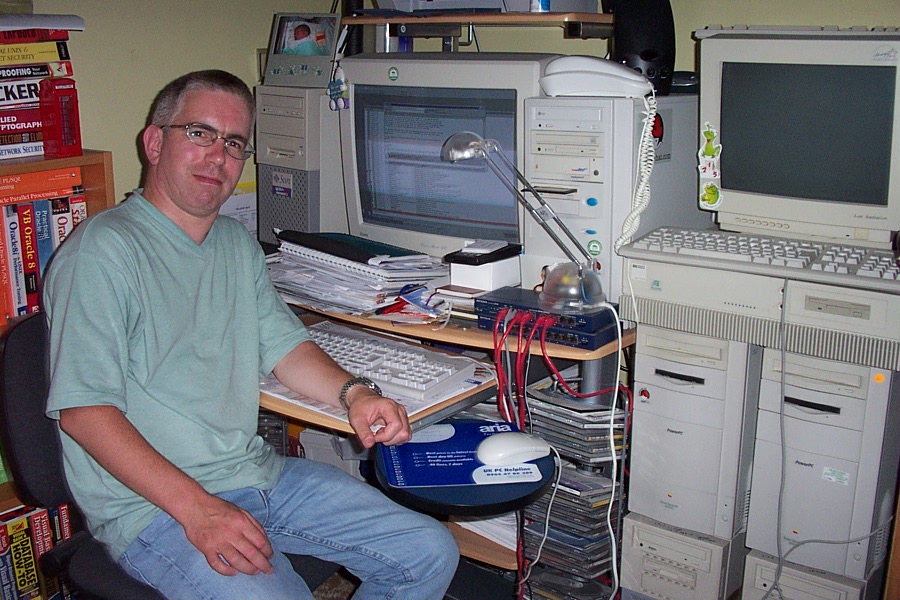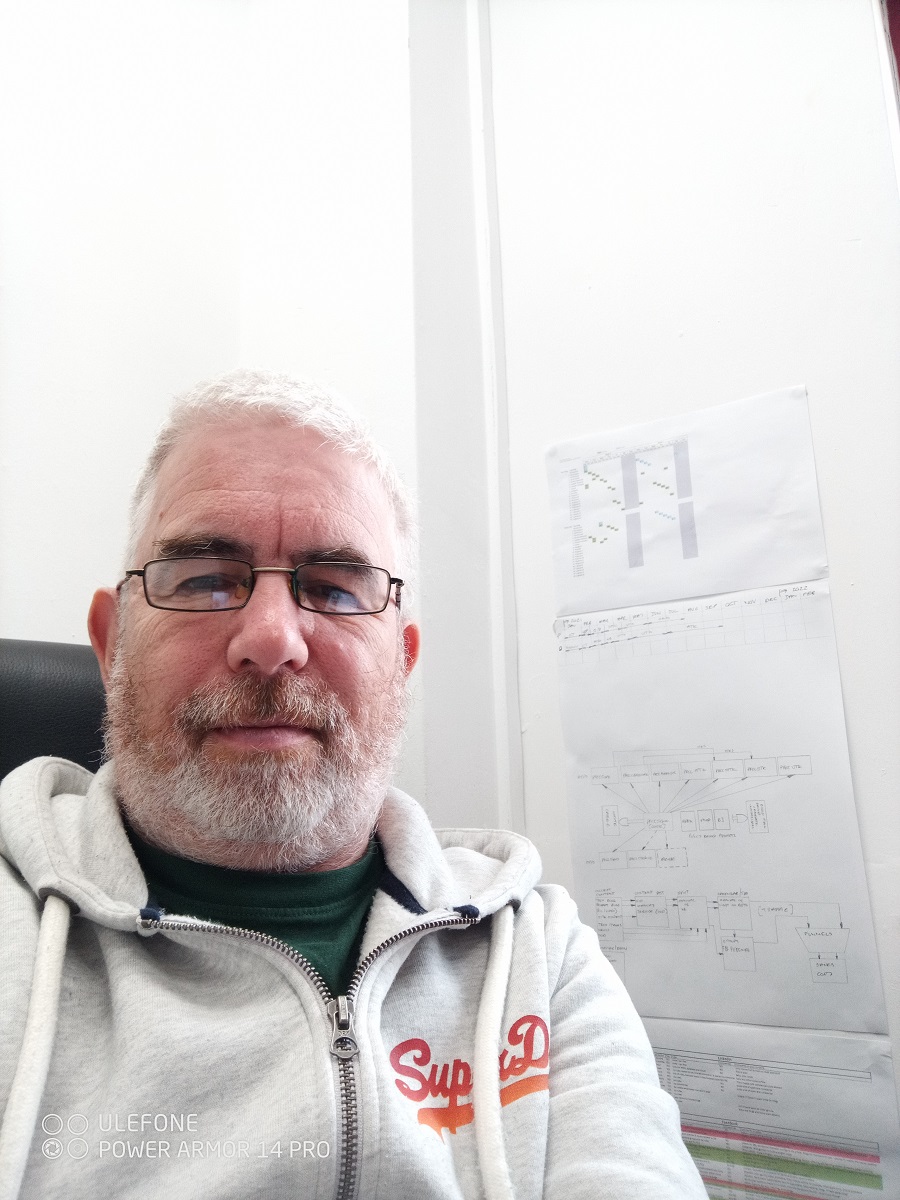
This photo as you can see became immortal as we caricatured it into our company logo. Also if you look just above my head you can see my oldest son as a baby who had just been born a few months before I started PeteFinnigan.com Limited. Now he is also over 20 years old and he now works for the company doing website and marketing. Here is photo of me in our offices taken a few days ago for comparison - look younger of course!!:

The computers 20 years ago are not needed anymore; we do not need stacks of servers for each test Oracle database as we use virtual machines now. We do still have a massive server though that hosts all of our virtual machines and test databases.
When I started the company I wanted to help people secure data in their Oracle databases. We still do this today of course and have the same goal; to make it easier for people to secure data in an Oracle database. The data security landscape has changed but not as much as we would hope. When I started 20 years ago no one was really focusing on data security; not to the level we do now. It was harder to find customers 20 years ago but now its easier as more companies are aware of the risks of their data being stolen and are much more accepting of the need to secure data. So times have changed at the high level.
20 years ago, before Oracle CPUs and serious efforts to secure Oracle, the normal approach was simple hardening from lists such as SANS or the very early CIS benchmark, as there were limited security patches they didn't figure a lot then. We even 20 years ago went further and we developed an approach and continue to improve it to this day that includes patching, hardening and actual data security which at a high level can be broken into user access controls, user security, data security, context based security and audit trails.
I started 20 years ago and we have developed many security classes that I still teach live in person or online helping people learn how to secure data in an Oracle database; we also developed and sell licenses for 5 software products aimed also at helping people secure data in an Oracle database and finally we developed a number of services such as detailed security audits, policy development, code reviews, audit trail designs and help deploying and designing and implementations of Oracle cost options such as Database Vault or masking or TDE or SSL or Keyvault...
The business has changed over the years but the core message is the same; we have a much richer set of training, products and services that we offer to customers. We are also on social media on Linked in
Has Oracle security changed in 20 years?, yes, in the sense that we know a lot more and have more facilities at our disposal to help secure data BUT I still see insecure databases and a lack of data security; the tide is changing but maybe not fast enough.
Please follow us on social media for more info and updates on securing data. We are on LinkedIn , Facebook and Twitter - please like and follow us for more articles and details.

















